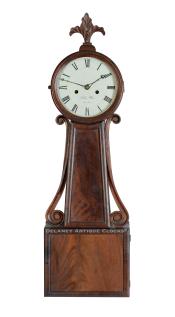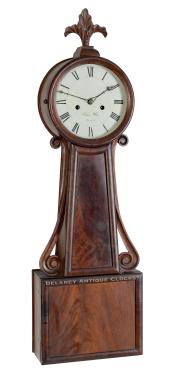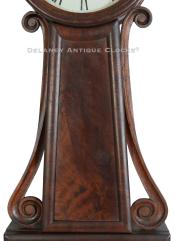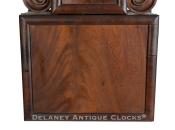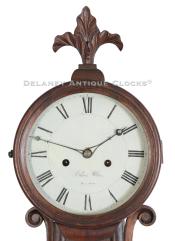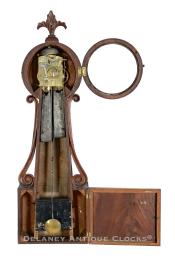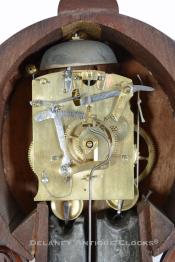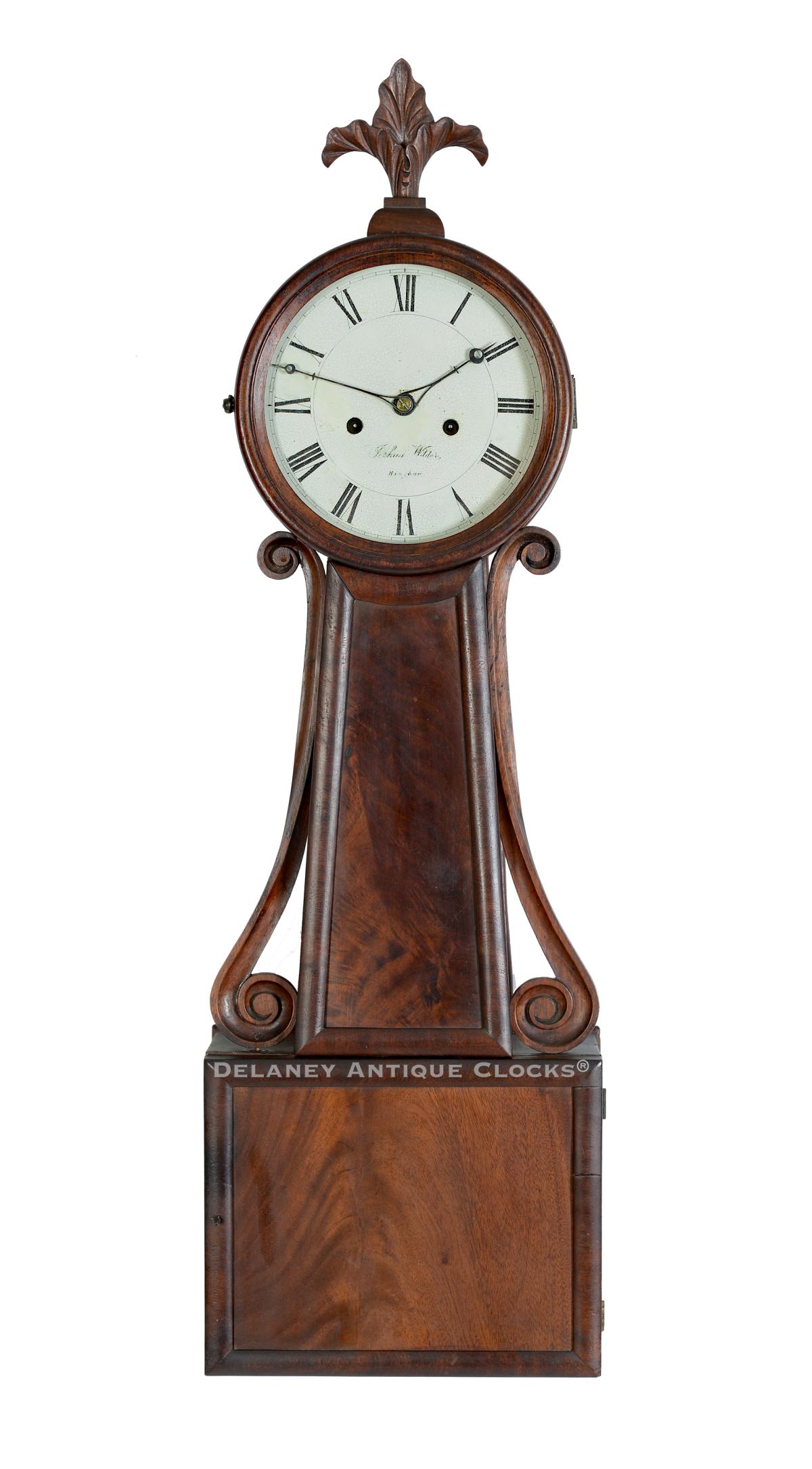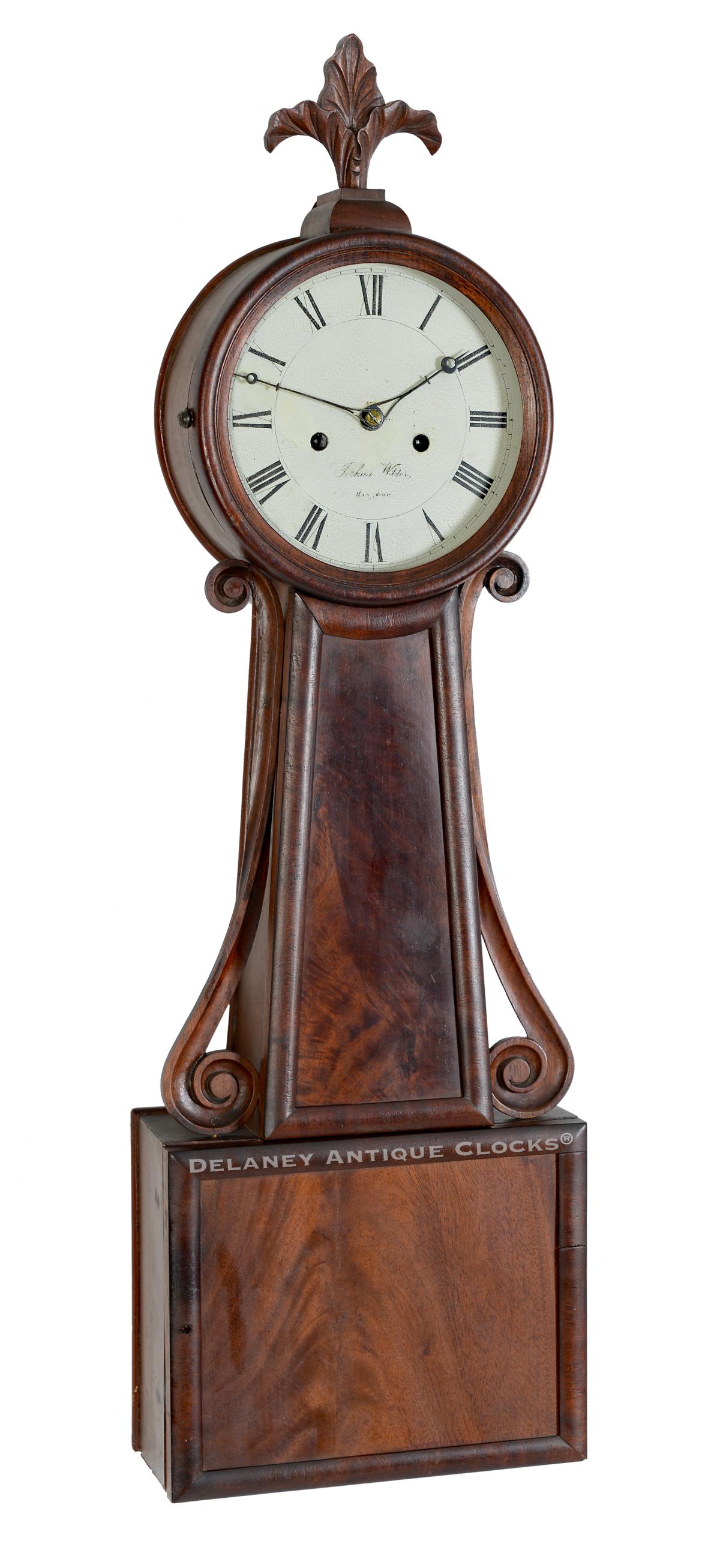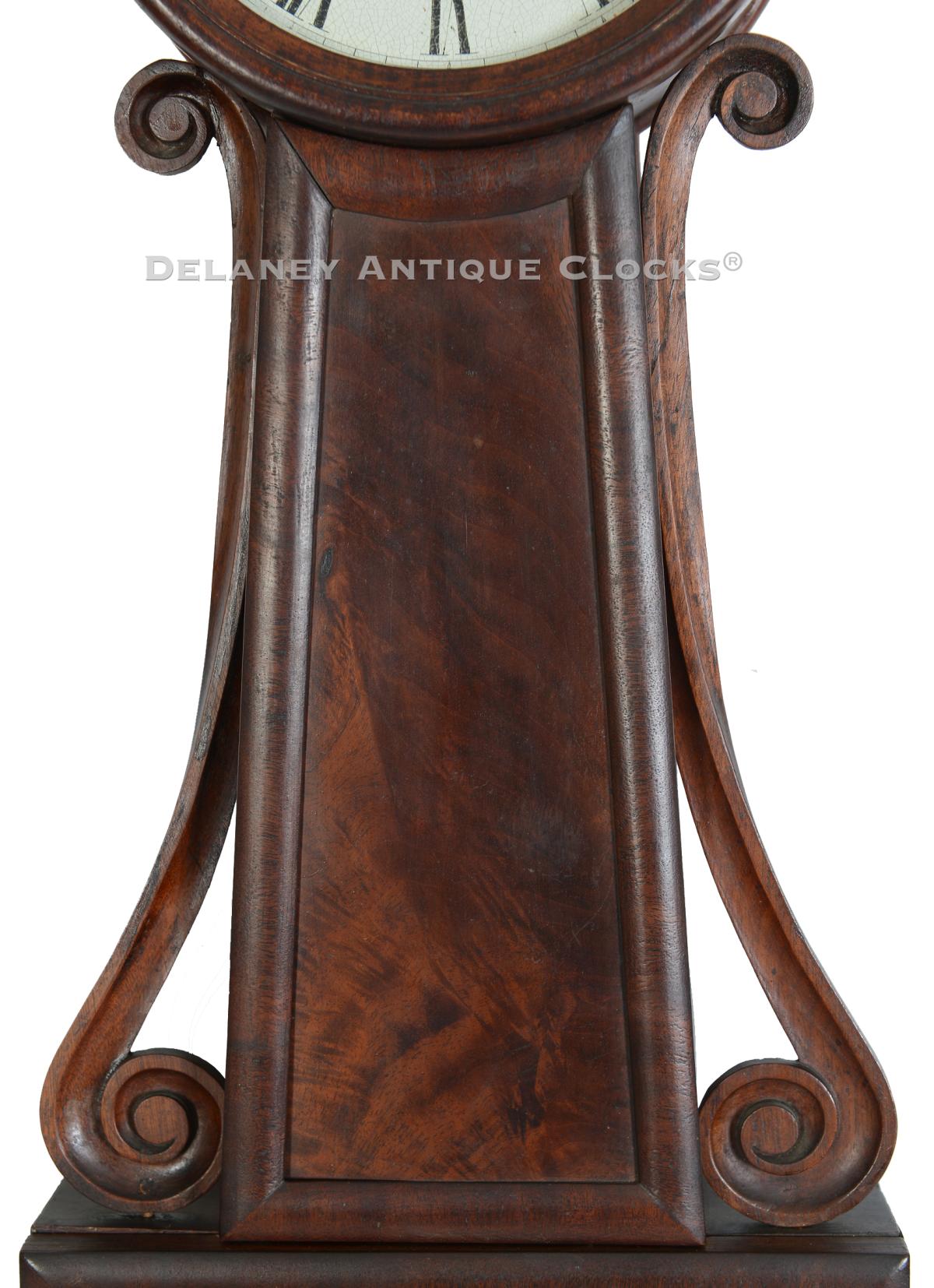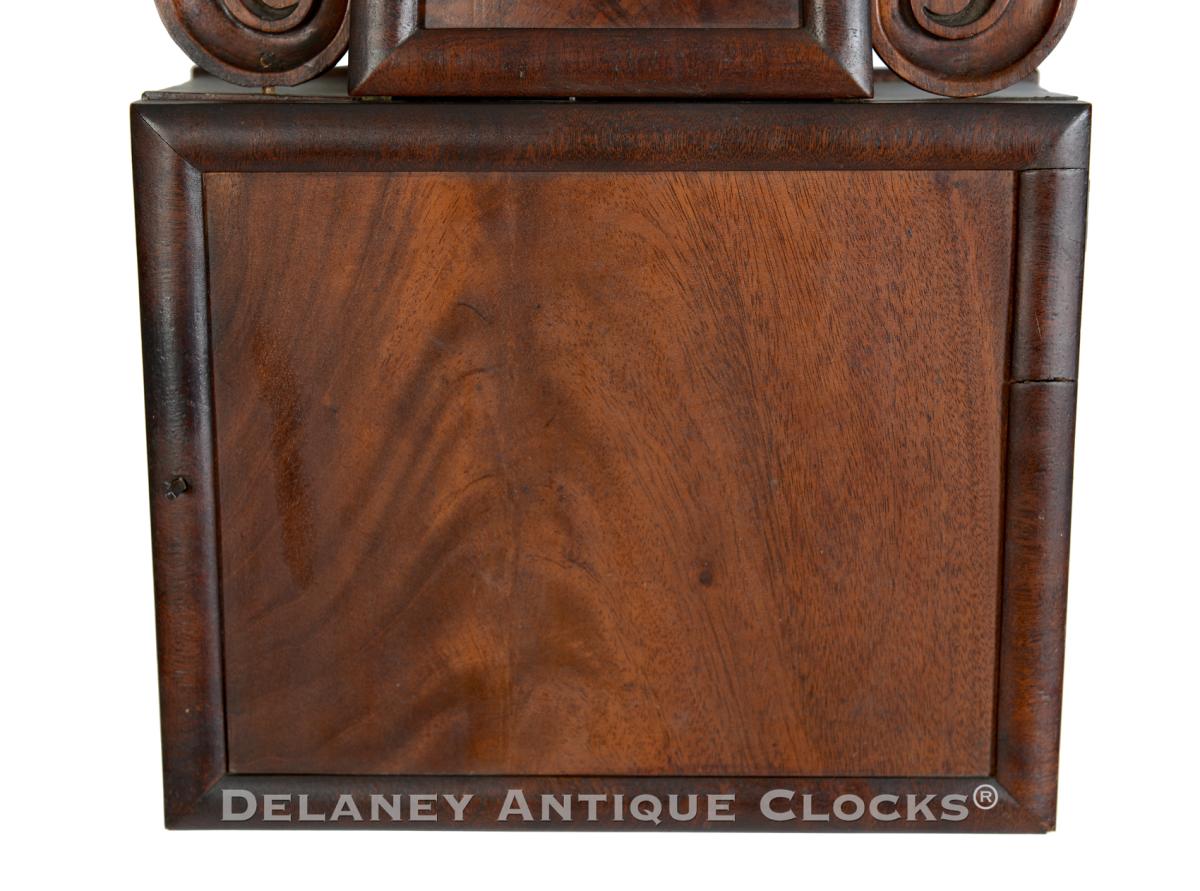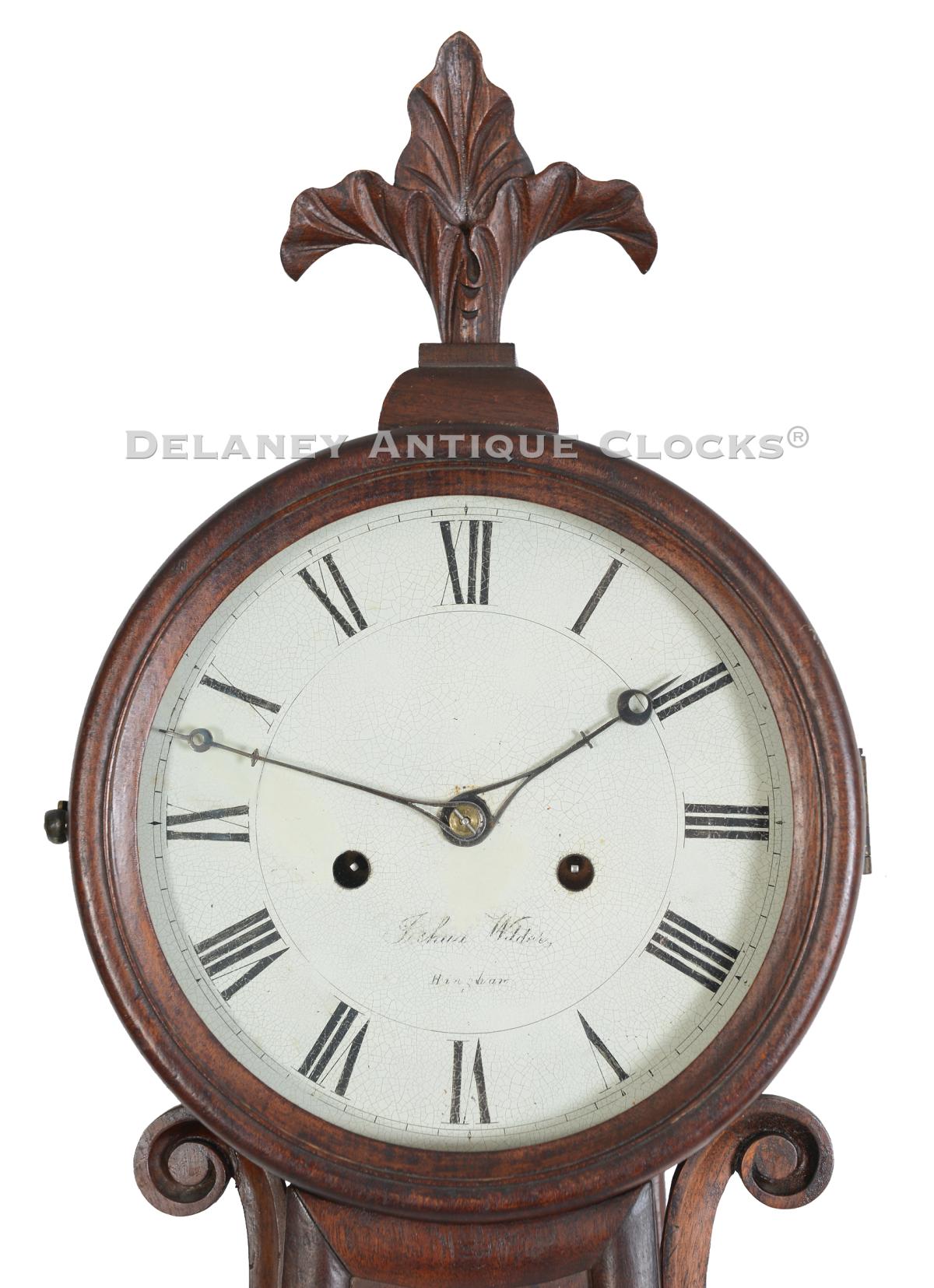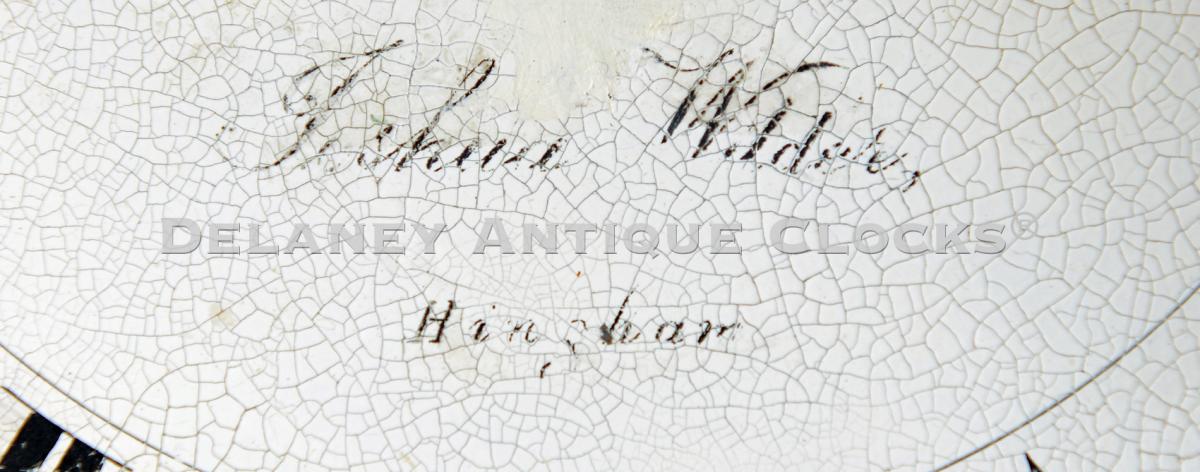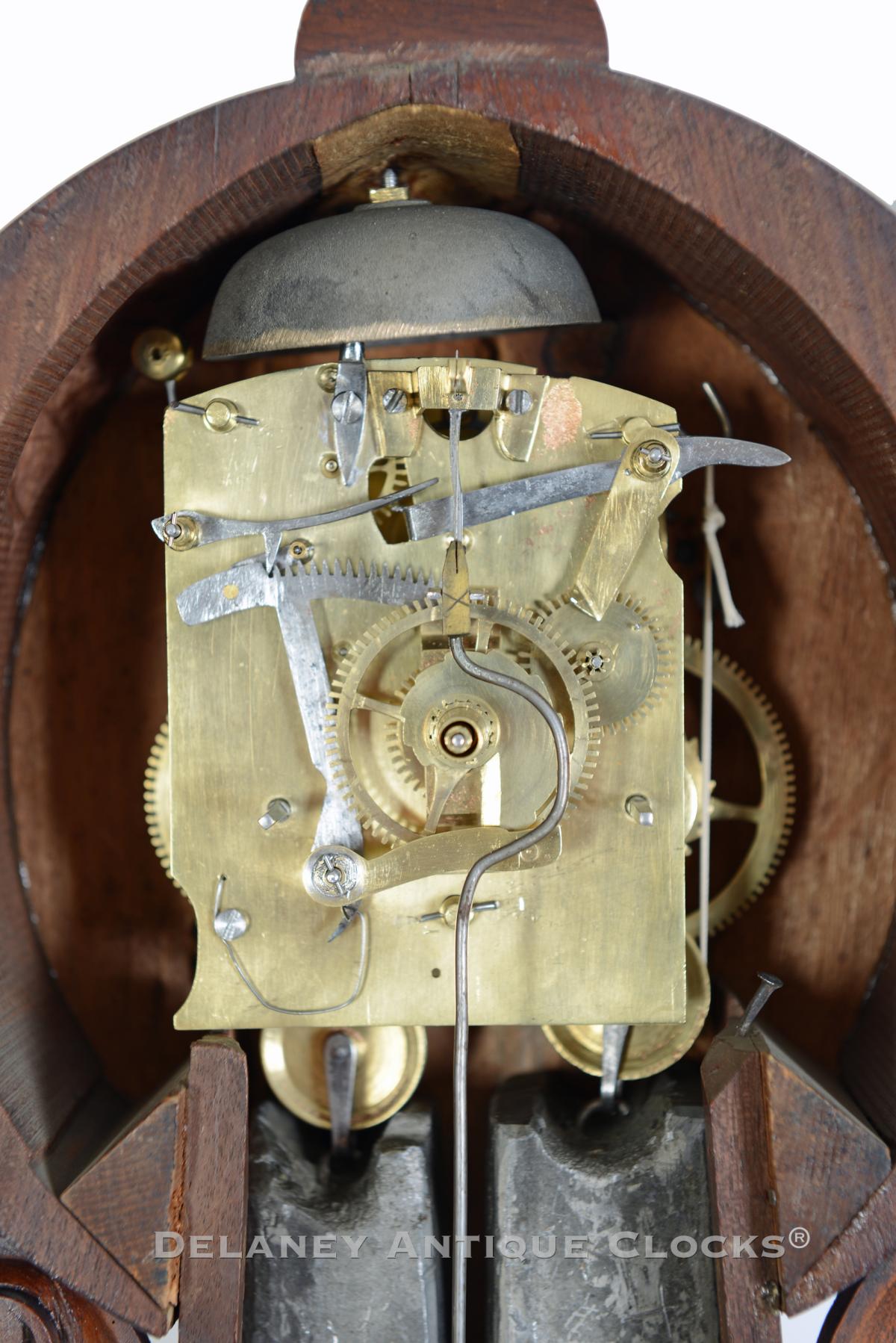Joshua Wilder. A full-striking wall clock. Hingham, Massachusetts. 223091.
Introducing a truly rare find, a striking banjo clock crafted by the skilled hands of Joshua Wilder of Hingham, Massachusetts.
Full-striking banjo clocks are very difficult to find in today’s marketplace. This is because they would have been much more expensive to manufacture than the standard timepiece version. In addition, they required an additional weight to power the strike train. This made the clock very heavy and would put the clock at a higher risk of falling off the wall if not appropriately secured.
This example measures approximately 32.75 inches long from the bottom of the lower box to the top of the center finial, 10 inches wide across the lower box, and 4 inches deep. The painted iron dial measures approximately 9 inches in diameter.
This is a fine example. The case is constructed in mahogany and its second finish enhances the grain patterns exhibited in the wood. At the top of the case is a carved wooden finial. This form is a reoccurring shape, and similar finials are found on banjo clocks made in Southeastern, MA. It is fitted onto a formed plinth. The dial bezel and the side arms are also carved from wood. The bezel is fitted with glass, which protects the dial. The bezel is hinged and opens to allow one access to the clock’s hands and winding arbors. The dial is signed. The signature reads, “Joshua Wilder / Hingham.” The throat and lower door frames feature half-rounded moldings and are fitted with mahogany veneered wooden panels. Both panels feature excellent grain patterns and are interesting to observe. The lower door opens to access the brass-faced pendulum bob and rating nut.
The movement is constructed in brass and features a full rack-and-snail striking train. This weight-driven clock is designed to run for eight days on a full wind and strike the hour on the hour on a bell mounted inside the case. The brass plates are rounded at the top and slightly shaped on the sides. They are supported by three posts and mounted inside the case to the backboard with screws. Hardened steel shafts support the brass gearing and recoil escapement. The two lead drive weights descend side-by-side below the works. The pendulum is mounted to a bridge on the front plate. This movement is of good quality.
Please read Paul Foley’s book, Willard’s Patent Timepieces, for a more detailed discussion regarding wall timepieces and their significance in the history of American clockmaking.
This clock was made circa 1820.
Inventory number 223091.
Joshua Wilder was born in Hingham, Massachusetts, on December 2, 1786. He was trained in the art of clockmaking by John Bailey Jr. of Hanover, MA. Wilder completed this apprenticeship sometime around 1807. It appears he stayed in Hanover briefly before moving back to Hingham to establish his home and business on Main Street in the South Parish. Wilder was the first clockmaker to settle in this prosperous town. He found a ready market for tall case clocks, dwarf clocks, wall timepieces, the Massachusetts shelf form, and mirror clocks. Wilder becomes one of America’s most prolific Makers of the dwarf clock form.
Joshua Wilder was active in the local religious Society of Friends. He became known locally as the “Old Quaker Joshua Wilder.” He was also involved with the Temperance Society and Peace Society of Hingham. Wilder’s business eventually evolves into a retailer of common goods. Wilder is said to have trained several Clockmakers, including his son Ezra Wilder, Reuben Tower, Allen Kelley, and Phillip Bennet. About 1840, it is said that his son Ezra joined him in business. Joshua died on October 4, 1860, in the town of Scituate.
A fair number of clocks made by this maker have been found. Many of these are the dwarf form but also include tall case clocks, timepieces, shelf clocks, and mirror clocks in much smaller numbers. Currently, the Hingham Library is displaying a tall case clock he made.

